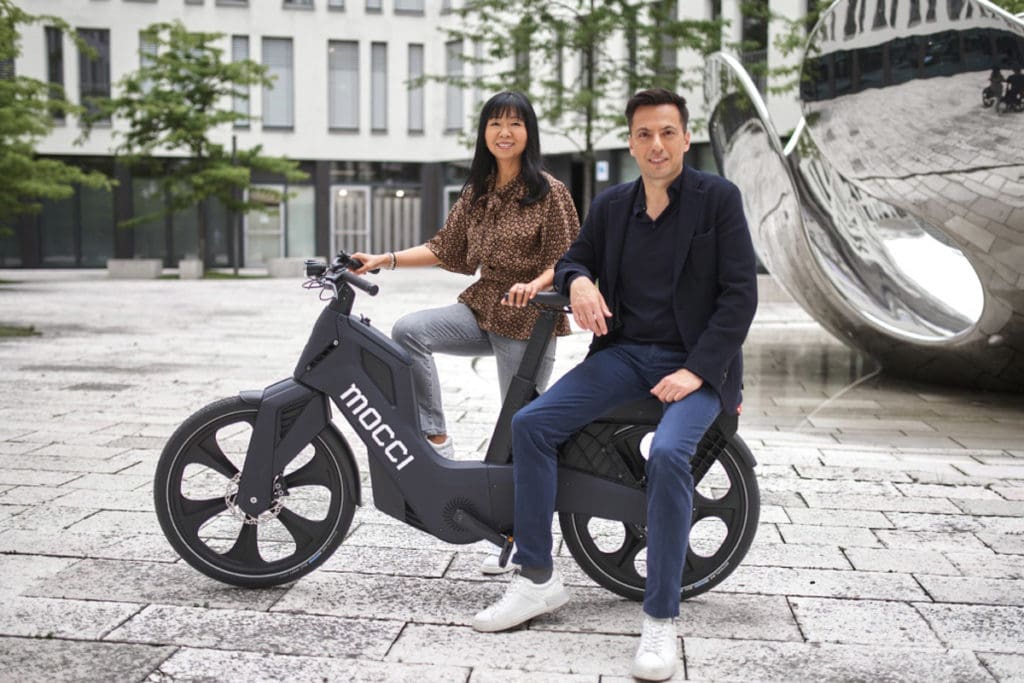Production Breakthrough for Chainless Drive System

Munich, Germany
The horizons for future e-bike designs opened considerably last month, when Munich-based e-cargo bike company Mocci became the first brand to go into production using a chainless drive system developed by fellow German company Schaeffler.
The Free Drive system, unveiled back in August 2021 and now incorporated into Mocci’s Smart Pedal Vehicles, opens up new possibilities in bike architecture and pedal configuration, according the Schaeffler, which manufactures automotive, aerospace and industrial components and has operations in Australia.
Without a physical chain or belt drive, the digital bike-by-wire concept will allow radically different configurations to two, three and four-wheel vehicles.
Schaeffler points specifically to its evolutionary potential for cargo bikes.
It says the bike-by-wire system also has advantages with more efficient transferral of power from the pedals and reduced wear and tear for the drive system.
Schaeffler said reduced maintenance requirements will be a major plus for operators of cargo bike fleets because their assets will spend more time on the road and less time in the repair shop.
Following field testing in January, Schaeffler began production of its Free Drive system last month, with plans to steadily increase capacity over the next few years.
Awarded Mocci Design
Mocci was the first customer to put in an order for Free Drive and recently won an esteemed design award for the Smart Pedal Vehicle.
The short-tail cargo bike topped the Urban categories at the Design & Innovation Award 2023, based in Italy, for setting “new standards in efficient, low-maintenance and sustainable commercial-sector mobility in cities and industrial zones”.
According to a statement from the awards, the Mocci cargo bike, “developed as an innovative micromobility platform, breaks with many established conventions in the bicycle industry, combining smart hardware with intelligent software and cutting-edge materials”.
The bike’s frame, wheels and forks are made of recyclable, high-performance plastics rather than steel or aluminium.
The frame is constructed using a scalable injection molding process that Mocci says emits about 68% less CO2 than processes used to produce conventional aluminium frames.
Its wheels are constructed in a single piece of plastic, making them less vulnerable that classic spoked wheels.
“In 2023, we will supply vehicles to a wide range of B2B customers – which means we will have a decisive impact on the shape of inner-city mobility,” according to Dimitrios Bachadakis, a cofounder of CIP Mobility, the parent company of Mocci.
He cites recent studies that show the size of the B2B e-bike market in Europe is expected to grow to nearly seven million units in 2023, compared to two million in 2022.
The Mocci e-cargo bike weighs approximately 35 kilograms and is expected to retail for around £5,000 (A$7,923).
